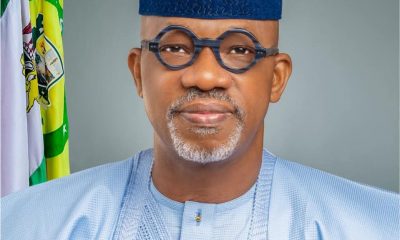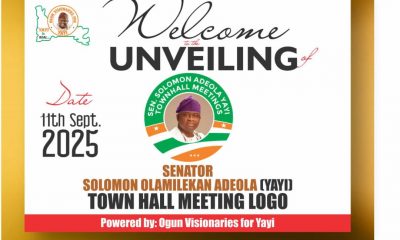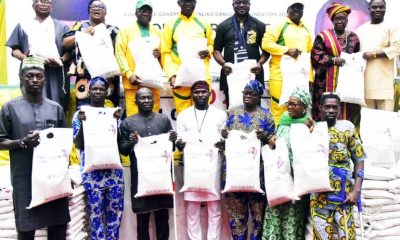society
OGUN GOVT COMMITTED TO REVAMPING TECHNICAL EDUCATION FOR ECONOMIC GROWTH
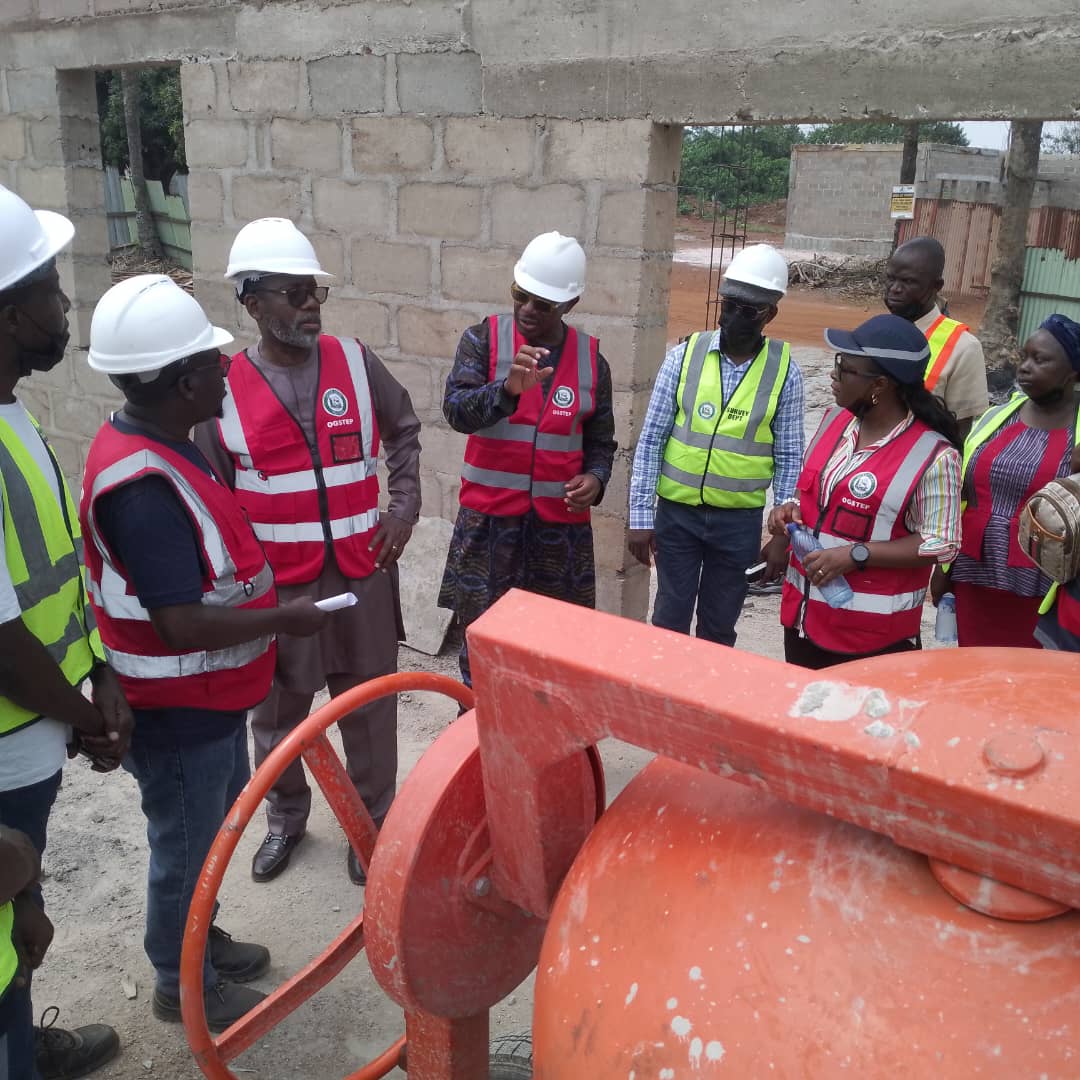
OGUN GOVT COMMITTED TO REVAMPING TECHNICAL EDUCATION FOR ECONOMIC GROWTH
Vocational education has been described as a critical bridge between Secondary and Tertiary Institutions, providing the foundational skills necessary for industrialisation and economic growth.
Ogun State Commissioner for Urban and Physical Planning, Tpl. Tunji Odunlami, made this assertion during an inspection of the ongoing rehabilitation of the Government Science and Technical College, Ilara-Remo in Remo North Local Government Area, emphasising the importance of vocational education in addressing skill gaps and ensuring a workforce capable of supporting industry development.
Odulami said the state government would work towards upgrading technical colleges to create a more conducive learning environment. He lamented the long-standing neglect of the state’s eight technical colleges, questioning why such vital institutions had not received adequate attention despite their critical role in the education system.
“Vocational education is extremely important. These technical colleges were built many years ago, yet they have suffered neglect. I find it surprising, considering how essential vocational training is to our education system.
“Learning in a dilapidated environment does not inspire or motivate students. That is why the government is taking this bold step to upgrade these facilities and encourage more young people to acquire practical skills,” he added.
Also speaking, the Director-General for Lands and Survey in the State, Mr. Segun Fowora, expressed satisfaction with the progress of the rehabilitation work, noting that similar upgrades were ongoing across other senatorial districts. He assured that modern teaching equipment would be installed upon completion.
In the same vein, Project Manager for the Skills Development Sector, Mr. Fatai Osunsanya, expressed optimism that the project would be completed on schedule, ensuring that students and teachers benefit from the improved infrastructure without delay.
Reacting to the development, Vice Principal (Administration), Miss Abidemi Aderemi, lauded the State Government’s efforts to revamp Technical Education, describing the intervention as a significant boost to both teaching and learning in the State’s Vocational Institutions.
news
GEN CHRISTOPHER GWABIN MUSA SUPPORT INITIATIVE COMMENDS STATE-FEDERAL COLLABORATION IN ZAMFARA

GEN CHRISTOPHER GWABIN MUSA SUPPORT INITIATIVE COMMENDS STATE-FEDERAL COLLABORATION IN ZAMFARA
The Gen Christopher Gwabin Musa Support Initiative (GCGMSI) has commended the Zamfara State Government for its decisive contribution to security operations through the donation of newly acquired armoured personnel carriers (APCs), surveillance drones, and other critical operational equipment to troops and security agencies in the state.
This commendation was contained in a statement signed by the Convener of the GCGMSI, Ibrahim Dahiru Danfulani, Sadaukin Garkuwan Keffi/Betara Biu, and made available to the press.
The equipment was formally commissioned on Wednesday, February 18, by the Grand Patron of the GCGMSI and Minister of Defence, General Christopher Gwabin Musa, OFR (rtd.), in a ceremony at the Government House, Gusau. The event was attended by senior military officers, heads of security agencies, and top officials of the Zamfara State Government.
The GCGMSI, in its statement, hailed the donation as a “transformative and timely intervention” that aligns perfectly with its core objective of advocating for and supporting tangible measures that enhance the operational capacity and welfare of Nigeria’s security forces. The Initiative praised Governor Dauda Lawal’s administration for moving beyond rhetoric to actionable, material support, describing the move as a “blueprint for state-level collaboration in national security.”
“The provision of these assets by the Zamfara State Government is a testament to visionary leadership and a profound commitment to the peace and stability of its people,” the GCGMSI statement read. “It represents the exact kind of synergistic partnership between state and federal authorities that the GCGMSI champions. This initiative will significantly close operational gaps, boost the confidence of our gallant troops, and send a strong message to criminal elements.”
Speaking at the commissioning, General Musa emphasized that sustained collaboration is indispensable in confronting the nation’s evolving security challenges. He specifically commended Governor Lawal for his proactive support.
“Governor Dauda Lawal has demonstrated exemplary leadership and an unwavering dedication to the security of Zamfara State,” the Defence Minister stated. “The provision of these armoured vehicles, surveillance drones, and other operational equipment will undoubtedly boost the morale and operational effectiveness of our troops and other security agencies on the ground. This is a commendable effort that should be emulated by others.”
The newly commissioned assets, which include multiple APCs and advanced surveillance drones, are expected to dramatically enhance the mobility, protection, intelligence-gathering, and rapid response capabilities of security forces, particularly in the state’s remote and difficult terrains where anti-banditry operations are ongoing.
In his remarks, Governor Lawal reiterated his administration’s steadfast commitment to being a reliable partner in the security architecture. He urged security agencies to deploy the new resources responsibly and effectively to safeguard lives and property.
The Federal Government, through the Ministry of Defence, reaffirmed its commitment to continuing and deepening such partnerships with state governments across the nation to strengthen coordination and resource allocation in the collective fight against insecurity.
The GCGMSI concluded its statement by urging other state governments to take a cue from Zamfara’s “bold and pragmatic” approach, affirming that such concrete support is vital for achieving lasting peace and security across Nigeria.
society
Governor Dauda Lawal Commissions 25 Armoured Personnel Carriers, Aerial Surveillance Drones to Combat Insecurity
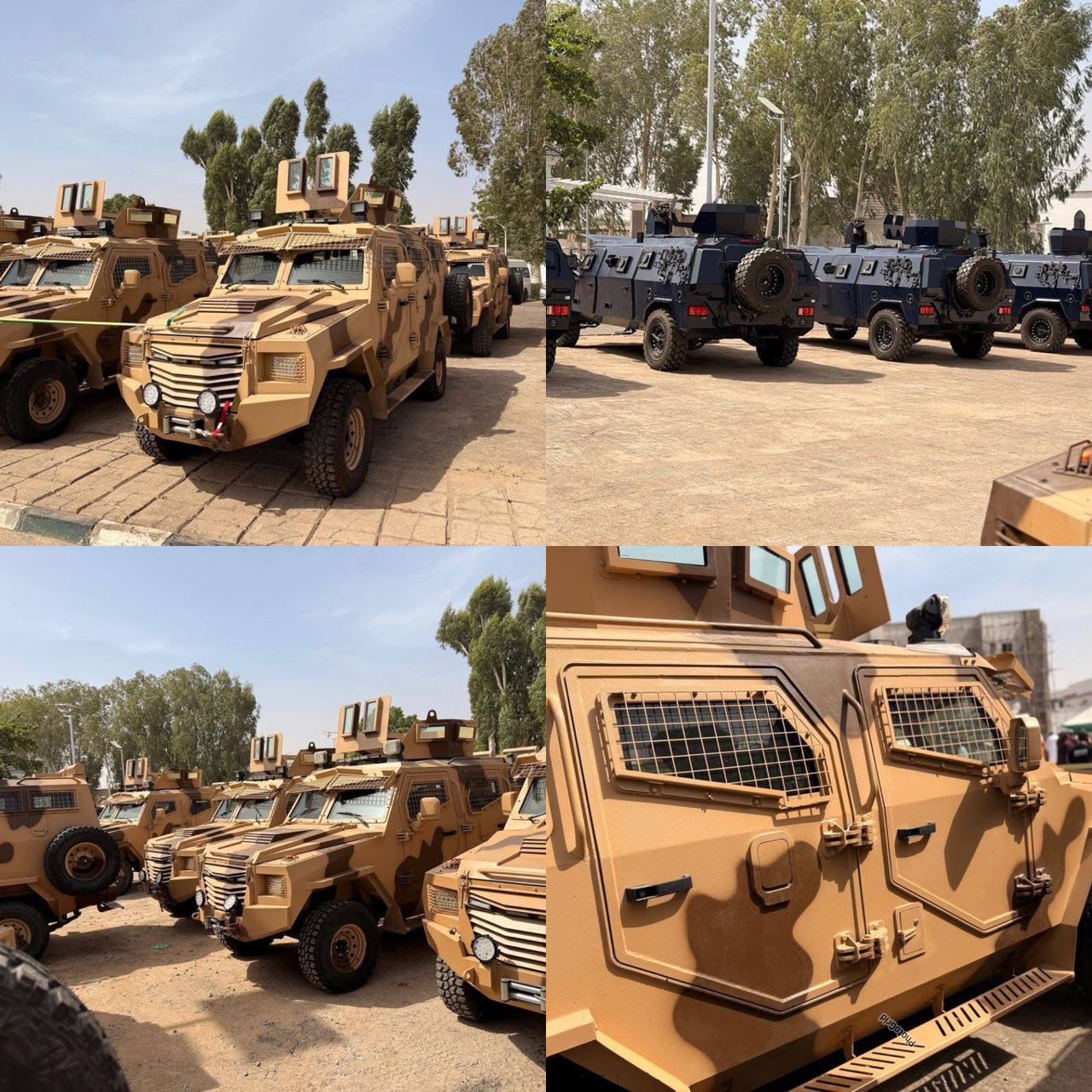
Governor Dauda Lawal Commissions 25 Armoured Personnel Carriers, Aerial Surveillance Drones to Combat Insecurity
In a major boost to the fight against banditry and insecurity in Zamfara State and the North-West Zone, Zamfara State Governor, His Excellency, Dr Dauda Lawal, on Wednesday commissioned 25 new Armoured Personnel Carriers (APCs) and sets of surveillance drones for the military and other security agencies operating in the state.
The event, which took place in Gusau, was part of the state government’s ongoing effort to provide structured logistical support to frontline security forces and combat insurgency, banditry, and protect lives and properties. Speaking at the commissioning and handover, Governor Lawal emphasised that the new assets are intended to enhance troop protection during high-risk deployments and improve rapid response capabilities in remote communities, ensuring tactical battle and overhead surveillance for victory.
“We have provided over 600 specialised motorcycles, 150 Hilux vehicles, and 20 Buffalo vehicles to our security forces. These 25 highly sophisticated APCs being commissioned today are therefore part of a broader reform to improve response to security threats. The APC’s significantly improves troop protection during deployments into high-risk areas. They reduce vulnerability during patrols, support convoy security along major routes, and strengthen rapid response capability when distress calls arise from remote communities.” the Governor stated.
Governor Lawal explained that the security challenges of recent years had disrupted farming, limited trade, and undermined public confidence across the state. He noted that his administration’s “Rescue Mission” agenda has focused on moving from fragmented responses to structured reforms, including the establishment of a Zamfara State Security Trust Fund and the operationalisation of Community Protection Guards to improve grassroots intelligence.
The Governor specifically highlighted the importance of integrating modern technology into security operations. He noted that the newly acquired drones would expand aerial surveillance, improve situational awareness, and support better coordination between command centres and troops in the field.
“Real-time information strengthens decision-making and reduces operational blind spots,” he added.
Governor Lawal however acknowledged the critical role of the Federal Government under President Bola Ahmed Tinubu, noting that recent federal budgets have allocated over three trillion naira to defence, a commitment he said strengthens subnational stabilisation efforts.
He urged the military commanders and personnel receiving the equipment to ensure disciplined maintenance and intelligence-guided deployment. “Enhancing your safety enhances the safety of our communities,” he told the troops.
Governor Lawal also told the people of Zamfara that; his administration remains resolute in restoring enduring security and peace across every Local Government Area. “We will sustain preventive measures, strengthen patrol architecture in rural corridors, deepen inter-state intelligence collaboration across the North-West, and maintain fiscal prudence in security expenditure. Stabilisation will continue through structured planning, lawful enforcement, and institutional reform.”
The Governor also linked the security investment to economic recovery, stressing that stability in rural areas is essential for agricultural productivity, market activity, and food security.
The event was attended by the Honourable Minister of Defence, General Christopher Musa (Rtd.), who formally commissioned the assets for operational service. Governor Lawal reaffirmed his administration’s resolve to sustain preventive measures and inter-state security collaboration until lasting peace is restored across all Local Government Areas in Zamfara.
society
Ramadan, Lent: Ajadi Urges Religious Harmony, Prayers for Nigeria
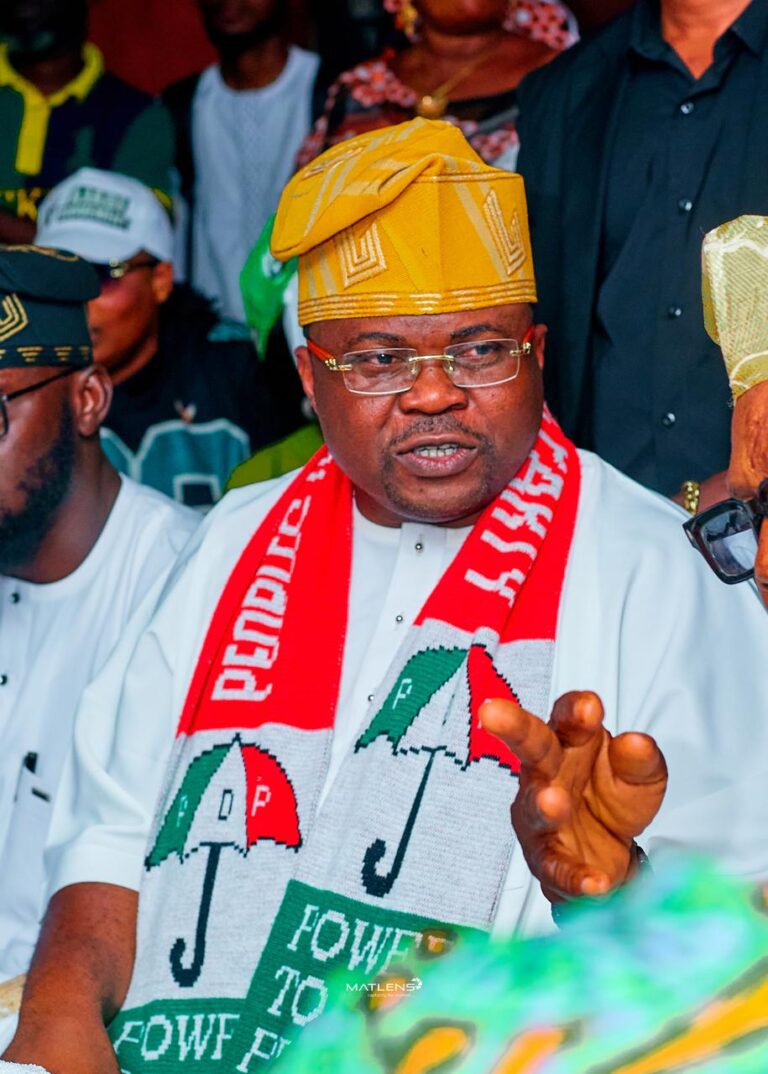
Ramadan, Lent: Ajadi Urges Religious Harmony, Prayers for Nigeria
A leading governorship aspirant of the Peoples Democratic Party (PDP) in Oyo State, Ambassador Olufemi Ajadi Oguntoyinbo, has extended warm felicitations to Muslims and Christians on the simultaneous commencement of Ramadan and Lent.
Ramadan, the Islamic holy month marked by 30 days of fasting and spiritual devotion, and Lent, the 40-day Christian season of fasting and reflection, began on the same day — a development Ajadi described as symbolic and spiritually significant.
In a statement personally signed by him on Wednesday, Ajadi congratulated adherents of both faiths and called for sustained religious tolerance, unity, and peaceful coexistence across the state and the country at large.
He described the coincidence in the commencement dates as a reminder of shared values between Islam and Christianity.
“The simultaneous commencement of Ramadan and Lent is a divine reminder that we all worship the same Almighty God. It is a call for unity, love, and mutual understanding among us,” he stated.
Ajadi urged Muslims and Christians to use the sacred periods of fasting and spiritual purification to pray fervently for Nigeria, especially in view of the nation’s economic and security challenges.
“Our country is facing significant hardship. The economic difficulties and prevailing insecurity require sincere prayers. This season of spiritual purification offers us a unique opportunity to seek God’s intervention for our nation,” he said.
He further emphasized that both Islam and Christianity preach peace, tolerance, and respect for constituted authority, urging citizens to embody these teachings in their daily lives.
“Let us live peacefully, tolerate one another, and continue to pray for those in leadership. Our faiths teach us to respect and uphold our leaders in prayer,” Ajadi added.
The PDP chieftain concluded by wishing Muslims a spiritually fulfilling Ramadan and Christians a reflective and enriching Lenten season, encouraging both communities to embrace love, sacrifice, and harmonious living throughout the sacred periods.
-

 celebrity radar - gossips6 months ago
celebrity radar - gossips6 months agoWhy Babangida’s Hilltop Home Became Nigeria’s Political “Mecca”
-

 society6 months ago
society6 months agoPower is a Loan, Not a Possession: The Sacred Duty of Planting People
-

 society5 months ago
society5 months agoReligion: Africa’s Oldest Weapon of Enslavement and the Forgotten Truth
-

 news6 months ago
news6 months agoTHE APPOINTMENT OF WASIU AYINDE BY THE FEDERAL GOVERNMENT AS AN AMBASSADOR SOUNDS EMBARRASSING


